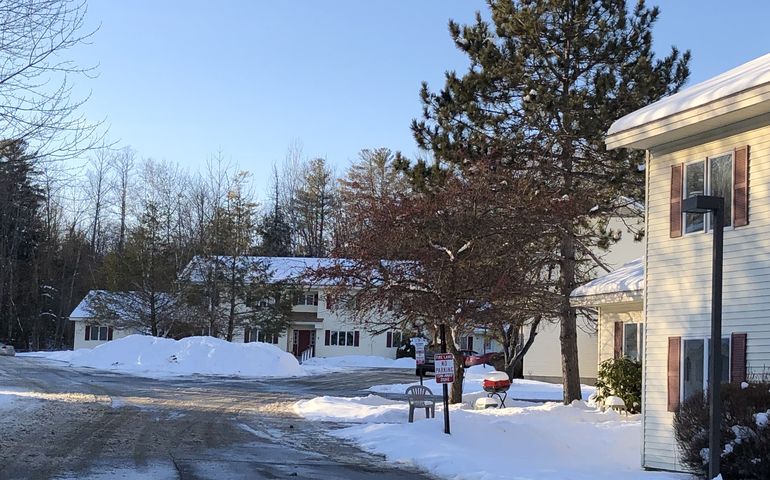Legislation aimed at doubling affordable housing construction goes to Mills
 Photo / Maureen Milliken
Oakview Apartments in Oakland, part of the USDA Rural Development 515 program that provides affordable housing. New state legislation will procted such units from reverting to market-rate housing
Photo / Maureen Milliken
Oakview Apartments in Oakland, part of the USDA Rural Development 515 program that provides affordable housing. New state legislation will procted such units from reverting to market-rate housing
Legislation that will pave the way for as much as 1,000 new units of low-income and senior housing in Maine was passed by both the Maine House and Senate Thursday, and is expected to be signed by Gov. Janet Mills in the coming weeks.
The program provides a tax credit to developers of affordable housing and is expected to double the current rate of housing production in the state, as well as protect U.S. Department of Agriculture low-income housing that's aging out and could become market-rate this year.
LD 1645 now goes to Mills, who said in her state of the state address last month, "Send that bill to my desk. I will sign it.”
The program "represents the largest investment that Maine has ever made in creating and preserving affordable homes," said Greg Payne, director of the Maine Affordable Housing Coalition, in a news release. "And it couldn’t have come at a more important time. Thousands of Mainers who are struggling with the burden of high housing costs will benefit from this new tax credit, and legislative leaders deserve a great deal of credit for stepping up in such a bipartisan way to make it happen."
The coalition proposed the legislation, which was sponsored by Rep. Ryan Fecteau, D-Biddeford.
There are about 52 available affordable housing units for every 100 Maine families earning 30% or less of the median income, according to the coalition.
How it works
The legislation calls for using $80 million in state tax credits over 10 years to leverage an equal amount of federal money not currently available to Maine.
The refundable credits, which would be administered by MaineHousing, the state's housing authority, would be available to individuals or corporations that invest in affordable housing. Some 30% of the allocation would be used for new senior housing, and 20% for new housing in rural areas. Some 10% of the allocation would preserve USDA low-income units that were created 40 years ago and are at risk of losing their protected status this year.
Under the program, a developer can claim 4% of the construction cost of a low-income housing development. It's similar to the federal Low Income Housing Tax Credit program that provides credits for 9% of affordable housing construction costs, but unlike the 9% program, the 4% program requires a state allocation and hasn't been used in Maine.
It's also similar to the Historic Preservation Tax Credit program in its use of both state and federal tax credits to spark development.
More than just housing
Senate President Troy Jackson, D-Allagash, and Sen. Cathy Breen, D-Falmouth, joined Assistant House Majority Leader Fecteau in sponsoring the bill.
The legislation's impact is expected to go beyond providing housing for seniors and other low-income Mainers, but also to help support businesses, Breen said.
Lack of affordable housing adversely affects businesses, especially in coastal tourist communities, she said.
"Restaurant and hospitality workers are struggling to find housing near their place of work everywhere from Bar Harbor to Portland, and the problem seems to be growing,” she said. “By improving access to affordable housing in Maine, we are supporting our families and seniors, while shoring up our workforce and strengthening our economy.”














0 Comments